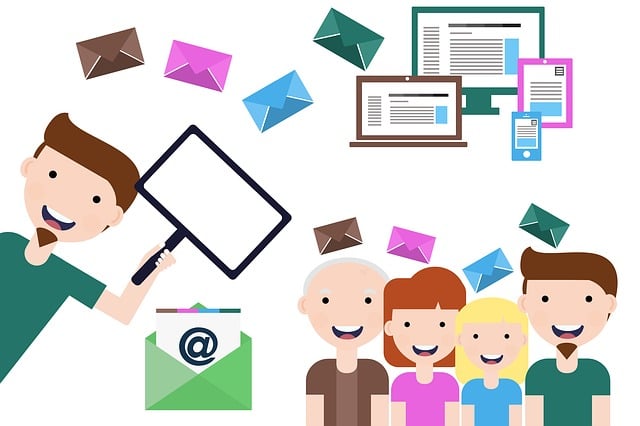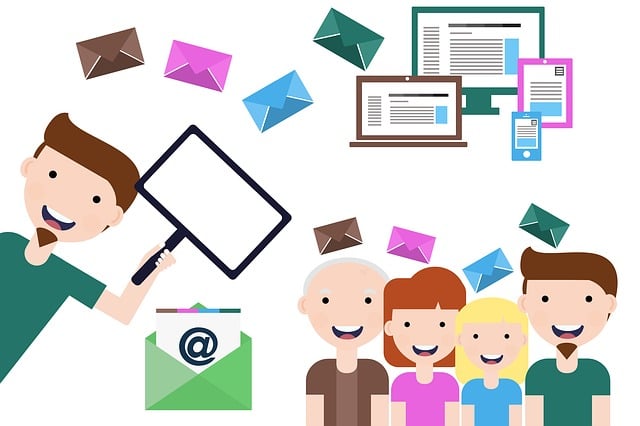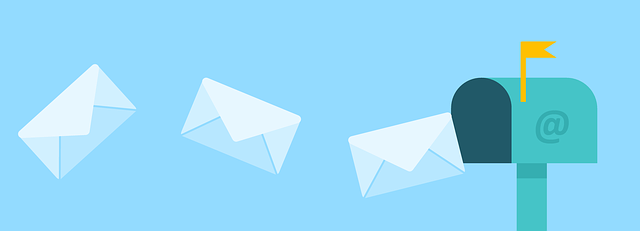Tired of scrolling through your overflowing inbox? Well, get ready to embrace the irony of email marketing for mobile apps. While it may seem absurd to use an outdated form of communication to promote the cutting-edge world of mobile apps, the reality is that email marketing can be a powerful tool for app developers.
In fact, it offers a range of benefits that can boost your app’s reach, engage users, and drive conversions. By leveraging the power of personalized and targeted messaging, email marketing allows you to connect with your audience in a meaningful way. Plus, it’s a cost-effective strategy that won’t break the bank.
However, like any marketing channel, email marketing for mobile apps does come with its fair share of challenges, such as deliverability issues and the need for mobile optimization.
In this article, we’ll explore the pros and cons of email marketing for mobile apps, so you can make an informed decision for your app’s marketing strategy.
Key Takeaways
- Increased reach, user engagement, and conversions
- Personalized and targeted messaging for increased engagement and satisfaction
- Higher conversion rates through user engagement
- Challenges of deliverability and mobile optimization
Increased Reach and Visibility
With email marketing, you’ll be able to reach a wider audience and increase the visibility of your mobile app, boosting your chances of success. Unlike other marketing strategies that may have geographical limitations, email marketing allows you to connect with users all over the world.
This global reach opens up new opportunities for expanding your user base and driving app downloads. Furthermore, email marketing enables you to enhance user engagement by providing personalized and targeted messaging. By segmenting your email list based on user preferences and behaviors, you can send relevant content that resonates with each individual, increasing the likelihood of their engagement with your app.
This personalized approach not only strengthens the user experience but also increases the chances of conversions.
Transitioning into the next section, let’s now explore the power of personalized and targeted messaging.
Personalized and Targeted Messaging
Imagine receiving tailored messages that speak directly to your interests and needs, making your mobile app experience even more personalized and enjoyable. With email marketing for mobile apps, this is possible through the use of personalization techniques and customer segmentation.
Here’s how it works:
-
Segmenting your audience based on demographics, behavior, and preferences allows you to send targeted messages that resonate with each individual user, increasing engagement and satisfaction.
-
By analyzing user data and tracking their interactions with your app, you can deliver relevant content, such as personalized recommendations, exclusive offers, and reminders about abandoned shopping carts.
-
Personalized messaging creates a sense of exclusivity, making users feel valued and appreciated, which in turn fosters loyalty and long-term engagement.
-
Through email marketing, you can also automate personalized onboarding sequences, sending new users a series of messages that guide them through your app’s features and benefits.
By leveraging personalization and segmentation, email marketing for mobile apps becomes a powerful and cost-effective marketing strategy.
Cost-Effective Marketing Strategy
You can maximize your budget by utilizing this economical marketing strategy. Email marketing for mobile apps is not only an affordable promotion method, but it’s also an efficient advertising tool.
Compared to other marketing channels, email marketing allows you to reach a large number of potential customers at a relatively low cost. With email campaigns, you can easily target specific segments of your audience, ensuring that your messages are delivered to the right people at the right time.
The cost-effectiveness of email marketing allows you to allocate your budget to other areas of your mobile app’s growth. By implementing personalized and targeted messaging, you can build stronger customer relationships and foster loyalty among your user base.
Transitioning into the next section, let’s explore how email marketing can help you in building customer relationships and loyalty.
Building Customer Relationships and Loyalty
Creating strong customer relationships and fostering loyalty is essential for long-term success in any business, and email marketing can play a significant role in achieving this.
Here are three ways email marketing can help improve customer retention and satisfaction:
-
Personalized Communication: With email marketing, you can segment your audience and send targeted messages based on their preferences and behavior. By delivering personalized content, you can make customers feel valued and understood, increasing their satisfaction and loyalty.
-
Regular Engagement: By sending regular emails, you can keep your app top of mind for customers. Whether it’s sharing updates, offering exclusive promotions, or providing valuable content, consistent communication through email helps build a lasting relationship with your audience.
-
Feedback and Surveys: Email marketing allows you to gather feedback and insights from your customers through surveys. By listening to their opinions and addressing their concerns, you can improve your app and ensure customer satisfaction.
By building strong customer relationships and fostering loyalty through email marketing, you can increase the potential for higher conversion rates.
Potential for Higher Conversion Rates
Unlock the door to a world of increased conversion rates by utilizing the power of personalized email campaigns that speak directly to the hearts and minds of your audience. User engagement is crucial in driving conversions, and email marketing allows you to connect with your mobile app users on a personal level. By analyzing user data, you can tailor your email content to their preferences, increasing the chances of capturing their attention and driving them to take action.
To illustrate the potential impact of email marketing on conversion rates, consider the following table:
| Email Campaign Type | Conversion Rate |
|---|---|
| Generic | 2% |
| Personalized | 8% |
| Targeted | 12% |
| Triggered | 15% |
As you can see, personalization and targeting can significantly boost conversion rates. By leveraging user data analysis, you can send relevant and timely emails that resonate with your audience, leading to higher engagement and conversion rates.
However, challenges of deliverability and mobile optimization need to be addressed to fully leverage the benefits of email marketing for mobile apps. Transitioning into the subsequent section, let’s explore these challenges and how to overcome them.
Challenges of Deliverability and Mobile Optimization
Addressing the challenges posed by delivering emails and optimizing them for mobile devices is crucial to fully capitalize on the advantages of email campaigns for driving conversions.
One of the main deliverability challenges is ensuring that emails actually reach the intended recipients’ inboxes and don’t get filtered out as spam. This requires careful management of email lists, adherence to best practices, and monitoring of deliverability metrics.
Additionally, mobile optimization limitations can hinder the effectiveness of email marketing for mobile apps. Emails need to be designed responsively to ensure they display correctly on different devices and screen sizes. This includes optimizing email templates, font sizes, and images.
By overcoming these challenges, businesses can maximize the reach and impact of their email campaigns, ultimately boosting conversion rates.
Frequently Asked Questions
How can email marketing help in increasing the reach and visibility of a mobile app?
Email marketing can significantly increase the reach and visibility of your mobile app. By leveraging email campaigns, you can target a specific audience and promote your app directly to them.
Case studies have shown that successful mobile app marketing campaigns using email marketing have resulted in higher app downloads and increased user engagement.
With the right strategies and compelling content, email marketing can effectively drive app awareness and attract more users to download and use your app.
What are some effective ways to personalize and target email messages for mobile app users?
To effectively personalize and target email messages for mobile app users, utilize personalization techniques and segmentation strategies.
By gathering user data such as location, preferences, and behavior, you can tailor your emails to specific user segments.
Craft compelling subject lines and use dynamic content to deliver personalized recommendations and offers.
According to a study by Experian, personalized emails generate six times higher transaction rates.
Implementing these strategies can significantly boost engagement and conversions for your mobile app.
Are there any specific cost-effective strategies that can be implemented for email marketing in mobile apps?
To implement cost-effective strategies for email marketing in mobile apps, email marketing automation is key. By automating emails, you can save time and reach a larger audience.
Additionally, tracking email marketing metrics such as open rates and click-through rates allows you to optimize your campaigns for better results. This data-driven approach ensures that you’re targeting the right audience with personalized and engaging content, maximizing the ROI of your email marketing efforts.
How can email marketing contribute to building strong customer relationships and loyalty for a mobile app?
Email marketing is a powerful tool for building brand awareness and retaining existing customers for your mobile app. By sending targeted emails, you can engage users and keep them informed about new features, updates, and promotions.
Studies show that personalized emails have higher open and click-through rates, leading to increased customer loyalty. Additionally, email campaigns allow you to gather valuable data on customer preferences and behaviors, enabling you to tailor your app’s offerings and enhance the overall user experience.
What are some potential factors that can lead to higher conversion rates through email marketing in mobile apps?
To achieve higher conversion rates through email marketing in mobile apps, you need to focus on key factors.
First, implement best practices for email personalization, such as segmenting your audience based on demographics and behavior. This allows you to send targeted and relevant messages, increasing engagement and conversions.
Second, optimize your email design for mobile devices to ensure a seamless user experience.
By following these strategies, you can significantly improve your conversion rates and drive more success for your mobile app.
Conclusion
In conclusion, email marketing for mobile apps offers numerous benefits. These include increased reach, personalized messaging, cost-effectiveness, customer relationship building, and higher conversion rates.
However, challenges such as deliverability and mobile optimization must be considered. Did you know that email marketing has an average ROI of 3800%? This staggering statistic emphasizes the effectiveness of email marketing in driving significant returns for mobile app businesses.
Don’t miss out on the opportunity to leverage this powerful marketing strategy and boost your app’s success. Start implementing email marketing campaigns today!










